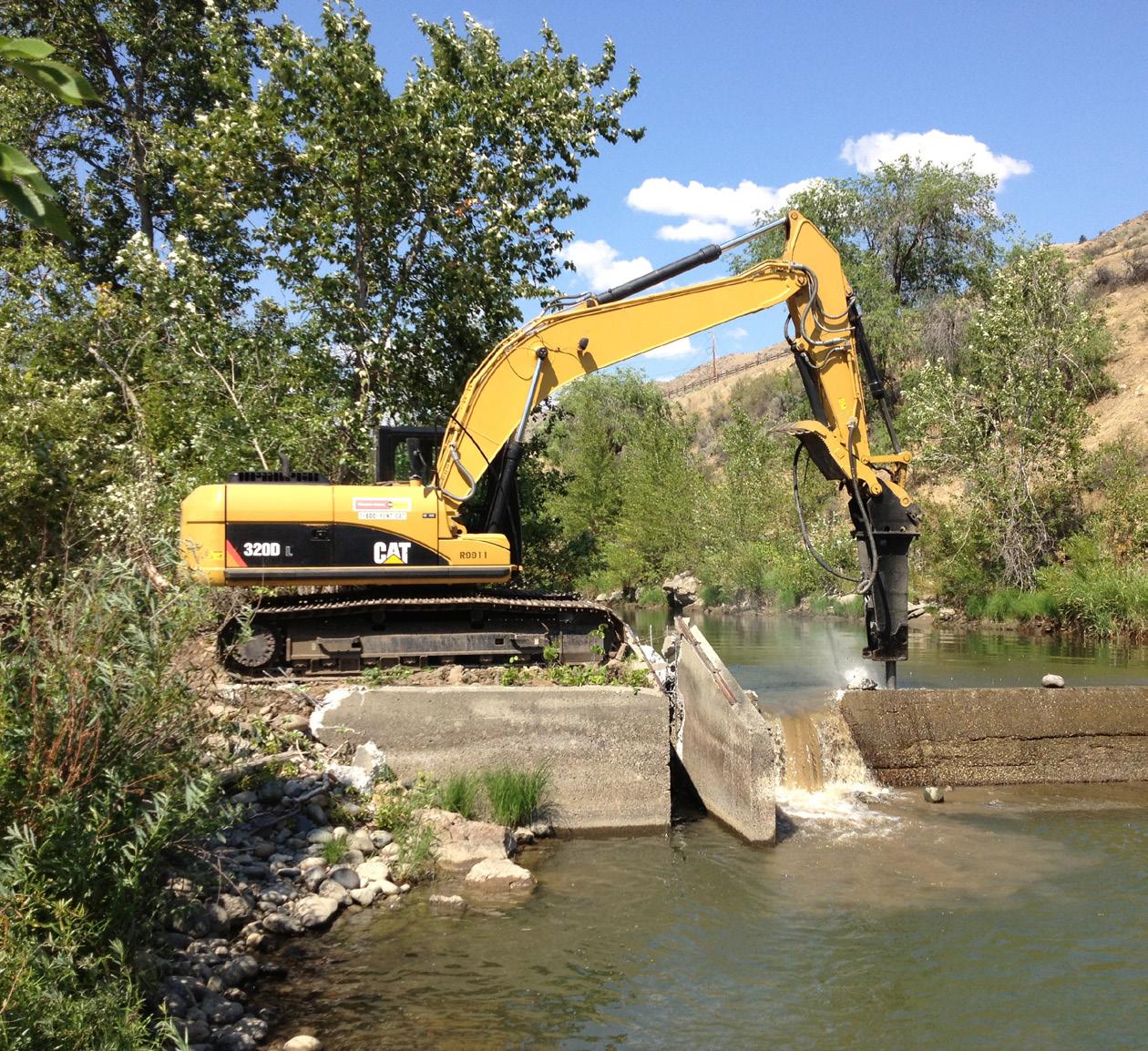
4 minute read
How Kennewick Irrigation District’s Administrative Fees Reduce Workload and Raise Funds
Housing development along KID water delivery infrastructure.
Kennewick Irrigation District (KID) is located in the rapidly growing Tri-Cities area of Central Washington. In response to the ballooning of administrative tasks related to urbanization and property transfers, KID instituted several administrative fees and set up a web portal to supply relevant information to title companies. In this interview, KID Secretary and District Manager Chuck Freeman explains how a judicious introduction of service fees can improve service levels, reduce workload, and raise money.
Advertisement
Irrigation Leader: Please introduce KID.
Chuck Freeman: KID’s service area covers 20,201 acres, with 12,000 acres of production agriculture and 8,201 acres of high-density urban and rural suburban subdivisions. The district has over 25,000 customer accounts. Chuck Freeman: We assess and charge customers based on the size of their parcel. We follow a tiered toll system, so prices vary for urban customers depending on their parcel size. In addition, we levy a flat rate for each parcel to fund our capital improvement fund and our new water infrastructure supply fund, which supports the identification of new water sources and the enhancement of our water supply from the Yakima and Columbia River systems.
Irrigation Leader: You also charge a fee for certain administrative tasks. Have you always charged for these things, or was the fee implemented in response to an increase in the workload?
Chuck Freeman: We added some administrative fees after we determined the level of service we wanted our district to provide. During the level-of-service conversation, I discovered that we employed a full-time customer
service representative whose entire job was to interact with title companies. We average 300 property transfers per month, and title companies are always in a hurry to close their transactions. Since we couldn’t charge the title companies for each call, we worked with our vendor, TruePoint Solutions, to create a web portal that has all the information a title company needs, such as outstanding balances. Now, we inform the title companies that public records laws in Washington State allow us 5 days to provide responsive records to their requests. If they don’t want to wait 5 days, they need to register at no cost for our web portal and use that resource to look up the information themselves. That has vastly reduced the workload related to property transfers and has saved over $75,000 per year in labor costs.
Property transfers also require us to create or transfer accounts within our TruePoint database. Even when the work with the title company is complete, a customer service employee still has to note that a customer moved from one address to another. We started to assess $10 for an existing customer transfer. Now, that fee is $15. New customers are assessed a $25 fee for the setup of their accounts. We have nearly 400 new accounts per year. New account fees and existing customer transfer fees provide approximately $64,000 a year in previously unrealized revenue.
Also, Washington State law allows irrigation districts to charge fees for late payments. KID assesses $25 for late payments. We only bill once a year, and we send reminders because assessments are split; the first half is due April 30, and the second half is due in late October. When we introduced the fee, of course, people threw a fit, but there’s a way around the fee: just pay your bill on time. The late payment fee generates funds that are used to offset the cost and staff time necessary to track and account for customer delinquent accounts.
Irrigation Leader: Are these charges in large part a response to urbanization in your district?
Chuck Freeman: Yes. The South Columbia Basin Irrigation District, which is across the river from us, covers 269,000 acres and has less than 5,000 customers. We cover less than 10 percent of that area and have 25,452 accounts, so you can see that we’re much more heavily urbanized.
Irrigation Leader: Are any other tasks becoming more onerous to the point that you would consider charging for them?
Chuck Freeman: I don’t anticipate needing to start charging for anything else. We recently implemented a phone system called interactive voice response (IVR). It has what is called screen pop, meaning that by the time a call is answered by a customer service representative, the customer account pops up on the representative’s computer screen. In addition, IVR allows customers to pay bills over the phone at no charge; they can also pay online or in person. Starting just in the last few weeks, we take checks over the phone at no charge to the customer. The technology we have added over the last 7 years has taken pressure off the customer service staff and has allowed us to not have to increase staff in that critical area.
Irrigation Leader: Are you aware of any other irrigation districts taking a similar approach to charging for administrative tasks?
Chuck Freeman: At a recent Irrigation Leader urbanization training, we and the Salt River Project of Arizona were the only organizations implementing these charges. Most districts don’t charge fees this way, and even those that do don’t do it to the same extent.
Irrigation Leader: What advice would you have for an irrigation district that might be interested in establishing a similar setup to yours?
Chuck Freeman: First, its executive staff and the board need to be on the same page. Second, the district has to have discussions on the level of service it provides within the existing billing regimen. Lastly, ease into the charges gradually. IL

The Tri-Cities are undergoing rapid growth, creating a significant administrative workload for KID.
Chuck Freeman is the secretary and district manager of the Kennewick Irrigation District. He can be contacted at cfreeman@kid.org.











